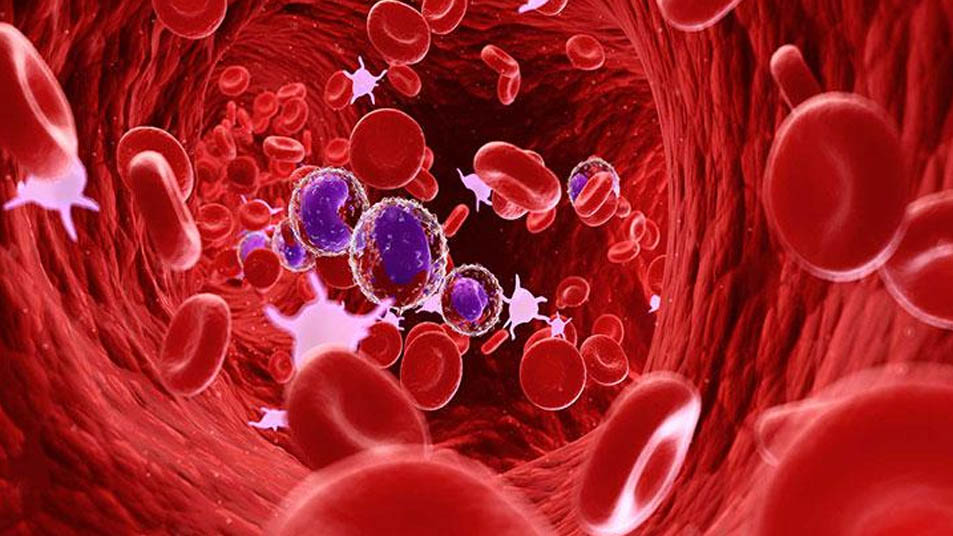
Hematology is the study and assessment of blood and associated blood disorders. Blood and blood component illnesses are the area of expertise of Hematologists and hematopathologists, and Bone marrow and blood cells are among them. Hematological tests are useful in the diagnosis of hemophilia, infections, and anemia. Leukemia and blood-clotting problems are also among them.
Hematology treatment involves the diagnosis and management of blood disorders, which can range from benign conditions to serious cancers like leukemia, lymphoma, and myeloma. The precise ailment and its severity determine the
therapy plan.
Disorders related to Hematology :
A hematologist studies and treats a variety of illnesses that mostly affect the blood.
Anemia : This involves the body producing too few healthy red blood cells to carry enough oxygen around the body.
Sickle cell disease : Red blood cells with sickle cell disease have a different morphology.
Thalassemia : This involves the body not making enough hemoglobin.
Bleeding disorders : These impair the body's ability to appropriately generate thrombi.
Thrombocytopenia : A low platelet count might make it harder for blood clots to form.)
Malaria : This infection can destroy red blood cells.
Von Willebrand’s disease : Individuals without the blood protein known as von Willebrand factor are susceptible to this bleeding illness.)
Thrombosis : A blood vessel clot is referred to as thrombosis.
Hypercoagulability : This describes the blood’s increased tendency Trusted Source to clot.
Blood cancers : These can affect the function of a person’s blood cells.
Tests and procedures for Hematology :
Complete blood cell count (CBC) : This test can help diagnose anemia, inflammatory diseases, and blood cancer. Additionally, it can support infection and blood loss surveillance). Complete blood count (CBC) includes White blood cell count (WBC), Red blood cell count (RBC), Platelet count, Hematocrit red blood cell volume (HCT), Hemoglobin concentration (HB). This is the protein in red blood cells that carries oxygen. Red blood cell indices
(measurements), differential white blood count.
Platelet count : This test helps diagnose and monitor bleeding disorders.
Blood enzyme tests : There are many types Trusted Source of these tests, which a doctor uses to help diagnose cardiovascular conditions, including heart attack.
Bone marrow biopsy : A bone marrow biopsy can be used to detect and track some types of cancer, anemia, and thrombocytopenia, a condition in which the platelet count is low.
Blood transfusions : This involves the body receiving healthy blood intravenously through an IV.
Prothrombin time (PT) : To evaluate bleeding and clotting disorders. Also to watch anticoagulation (anticlotting)
therapies.
Common Hematology treatments :
1. Medications :
Chemotherapy : Used for blood cancers like leukemia, lymphoma, and multiple myeloma.
Immunotherapy : Helps the immune system fight cancer cells.
Targeted Therapy : Focuses on specific genes or proteins that contribute to cancer growth.
Anticoagulants : Prevent blood clots in conditions like deep vein thrombosis (DVT) or pulmonary embolism.
Growth Factors : Stimulate bone marrow to produce more blood cells.
2. Blood Transfusions
Red Blood Cell Transfusions : Treats anemia and other conditions where there is a shortage of red blood cells.
Platelet Transfusions : For patients with low platelet counts, often due to chemotherapy or certain blood disorders.
3. Bone Marrow Transplant (BMT) / Stem Cell Transplant
Autologous Transplant : A transplant that is autologous uses the patient's own stem cells.
Allogeneic Transplant : Uses stem cells from a donor.
4. Radiation Therapy :
Used in conjunction with chemotherapy for certain blood cancers.
5. Surgical Interventions :
Splenectomy : Removal of the spleen in cases of certain blood disorders.
6. Phlebotomy :
Regular removal of blood to treat conditions like hemochromatosis or polycythemia vera.
7. Lifestyle and Supportive Care :
Nutritional support, pain management, and psychological support are crucial aspects of care.
8. Clinical Trials :
Taking part in clinical trials might provide access to innovative therapies that are not yet commonly available.
